While the Halberg Foundation’s name and structure may have changed over the past 60+ years, our organisation remains committed to enhancing the lives of physically disabled people by enabling them to participate in sport and recreation.
1963

Murray Halberg attends a Sports Journalists function in Toronto, Canada, to help raise funds for disabled children. Inspired by the cause, Murray returns to New Zealand and rallies support to establish the ‘Murray Halberg Trust for Crippled Children’. The Trust is for ‘the benefit, education, advancement in life, or personal support in any way whatever, of children with physical disabilities’.
One of the Trust’s first initiatives is to resurrect the ‘Sportsman of the Year’ dinner. This event now has the dual purpose of honouring sporting excellence and raising funds for Murray’s newly established charity.
1969

A long-standing partnership with the Eagles Golfing Society begins after legendary American Olympic track and field champion, Jesse Owens, is guest speaker at the 1969 Sportsman of the Year Awards, and attends a golfing fundraiser for the Trust. The Eagles’ support of the Halberg Foundation remains strong to this day, with their contribution to the Halberg Activity Fund.
1970

The Trust invests in a recreational seaside property in Orewa called ‘Hendry House’. The house is made into a fully accessible holiday home which can be rented out by disabled children and their families.
1980
The Sportsman of the Year Awards becomes ‘The Halberg Awards,’ which continues to raise funds for the Trust.
1981

The Trust grants funding to the Mt Roskill Grammar Disability Unit for the purchase of adapted vehicles and specialised touch and wand computers.
1983

Changes to the Education Act 1983 mean greater inclusion of disabled children within the education system. The philosophy of inclusion gains momentum in all sectors, and young people begin seeking inclusive opportunities to play sport. The Trust begins to fund a variety of programmes to cater for this demand.
1990

The Trust works hard to cope with the demand for more youth-focused disability sport opportunities, yet continues to be inundated with requests for funding.
1994

The Trust rewrites its original Trust Deed, removing the word “physical” to better represent the children who are benefitting from its work.
1995
The Halberg Trust takes a professional leap by employing its first CEO, and is instrumental in bringing a number of disability sports groups together. The Trust launches ‘Halberg Sports’ – a popular after-school programme for disabled children.
1996

Halberg Sports spreads to more than 40 venues across the country and delivers sport opportunities to more than 1300 children annually. The Trust continues to be inundated with requests from sporting and disability organisations seeking funding.
1998
The Hillary Commission works with the Halberg Trust to create a sporting environment in which disabled people have equal opportunities to participate, enjoy and excel in the sport of their choice.
The Halberg Trust helps fund a disability sport pilot programme in the Bay of Plenty. A Sport Opportunity Officer (SOO) begins working at the Bay of Plenty Regional Sports Trust to implement inclusive community sport programmes for disabled people.
1999

The success of the Sport Opportunity Officer pilot programme in the Bay of Plenty leads to the conclusion that the inclusive delivery of disability sport in New Zealand is the preferred approach. Halberg Sports is disestablished in favour of an inclusive model.
2001

SPARC (Sport and Recreation New Zealand) is established by the Government and immediately acknowledges the importance of disability sport in New Zealand. The Halberg Trust plays a lead role in distributing SPARC funding to National Sport Organisations to develop inclusive programmes for disabled people. Coined the ‘No Exceptions’ policy, this programme aims to build a sporting environment where disabled people have the same opportunities as all New Zealanders to play the sport of their choice.
The Halberg Trust appoints 10 Sport Opportunity Officers in Regional Sports Trusts throughout New Zealand. Their role is to work with clubs, sporting organisations, recreational facilities and schools to develop sport opportunities for disabled young people.
2005
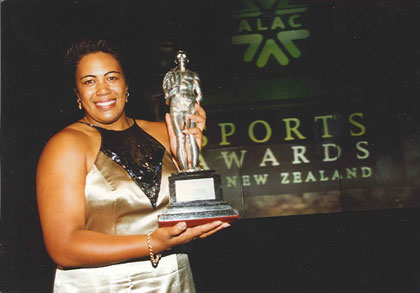
The SOO role is renamed ‘Sport Opportunity Adviser (SOA)’ but retains the core principles of the role from when it was first trialled.
2006

The Halberg Trust seeks equipment and intellectual property from the Australian Sports Commission, which leads to the launch of ‘Sports Ability’ and ‘Inclusion Training’. These programmes are facilitated by Halberg Trust SOAs and aim to increase participation and enhance understanding of disability sport throughout the entire sporting sector.
2010

The Halberg Trust begins an internal project to establish ‘clarity and alignment within the Halberg Trust, particularly regarding aims and objectives, people served, and key philosophies’.
2011

As a result of the clarification project, the Trust’s new operational purpose becomes ‘to enhance the lives of physically disabled young people, their families and communities, by enabling them to participate in sport’. The Trust develops a clarification strategy and commences a rebranding project. The Trust introduces a ‘Disabled Sportsperson of the Year’ category at the Westpac Halberg Awards.
2012
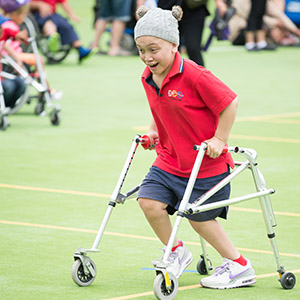
The Foundation renames its Sport Opportunity community programme ‘AllSports’ in order to enhance its relevance to a young and diverse target audience. As part of the new operational strategy, the Foundation now employs its field staff, referred to as Disability Sport Coordinators.
2014
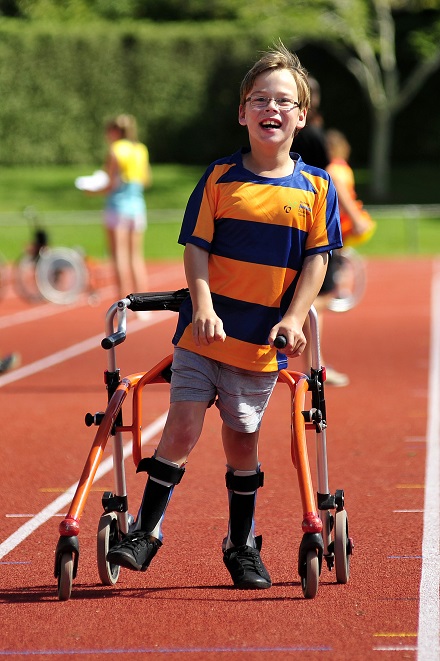
Through consultation with the Ministry of Education and the Ministry of Development, the Foundation designed a new series of Inclusion Training workshops, specific to primary schools.
The Foundation is selected by the Independence Games Trust to assume the management and organisation of the Junior Disability Games for 2015 and beyond. The event is renamed the Halberg Games.
A new Trust Deed is introduced which allows the Foundation to ensure it has a best-practice corporate governance model.
2015
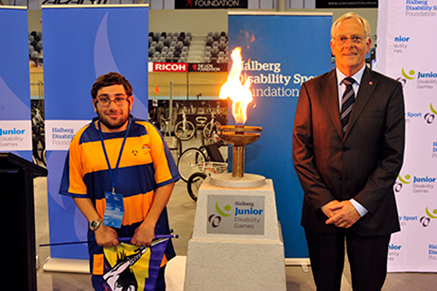
Halberg hosts the Halberg Games for the first time. The national three-day sports competition for physically disabled and visually impaired young people, aged eight to 21 years, took place at St Peters College in Cambridge with 100 athletes from 12 regional teams attending. The event moves to King’s College in Auckland in 2017.
2016
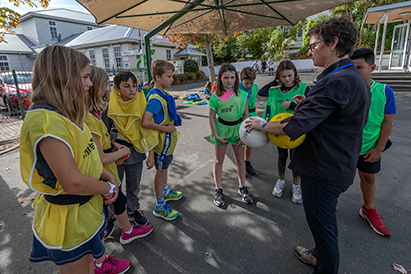
The Halberg Inclusion Training, (formerly known as No Exceptions Training (NET)) becomes available for the first time to schools as a Professional Learning and Development (PLD) course. The training provides schools and organisations with the knowledge, tools and confidence to provide sport and recreational activities to all students across various abilities and skill sets.
2017
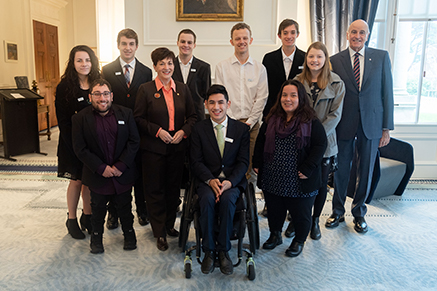
Halberg launches its first ever Halberg Youth Council – a group of 10 young leaders from around the country representing the voices of physically disabled young people.
2018
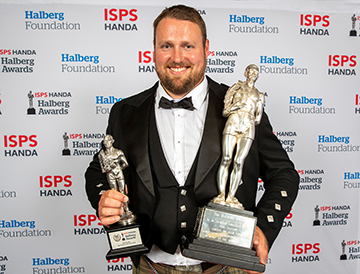
The Halberg Manaakitanga Leadership Programme launches. The leadership training programme for secondary school students in Counties Manukau was created to help drive awareness and support Halberg’s disability sport and recreation activities in the region.
Halberg announces a new partnership with the International Sports Promotion Society (ISPS Handa) during an event at Spark Arena – home of the ISPS Handa Halberg Awards.
Halberg’s new partnership with ISPS Handa launches a scholarship programme for promising young physically disabled athletes known as the ISPS Handa Talent Scholarship. The scholarship is provided to Halberg Games athletes to compete at an international event.
2019
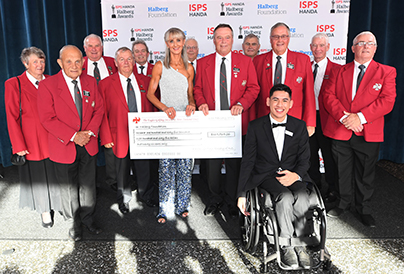
Halberg celebrates a 50 year relationship with the Eagles Golfing Society of New Zealand. Funds from the Eagles go to the Halberg Activity Fund – providing physically disabled young people with grants for adaptive equipment, lessons and camps. In 2018, the Eagles reached a milestone of $5 million raised for the Halberg Foundation over the 50 year relationship.
2020
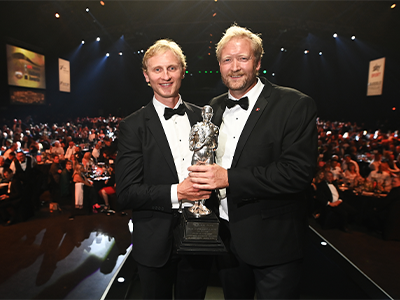
The Halberg Foundation honoured the sporting champions of the past decade as the centrepiece of the ISPS Handa Halberg Awards in 2021. The ISPS Handa Halberg Awards Decade Champion was a celebration of outstanding sporting achievements from 2010 to 2019 where previous Halberg Award winners across eight categories vied for the Decade Champion honours.
Hamish Bond and Eric Murray were crowned the ISPS Handa Halberg Award Decade Champions at the ceremony held at Spark Arena on Wednesday 24 March 2021.
2023
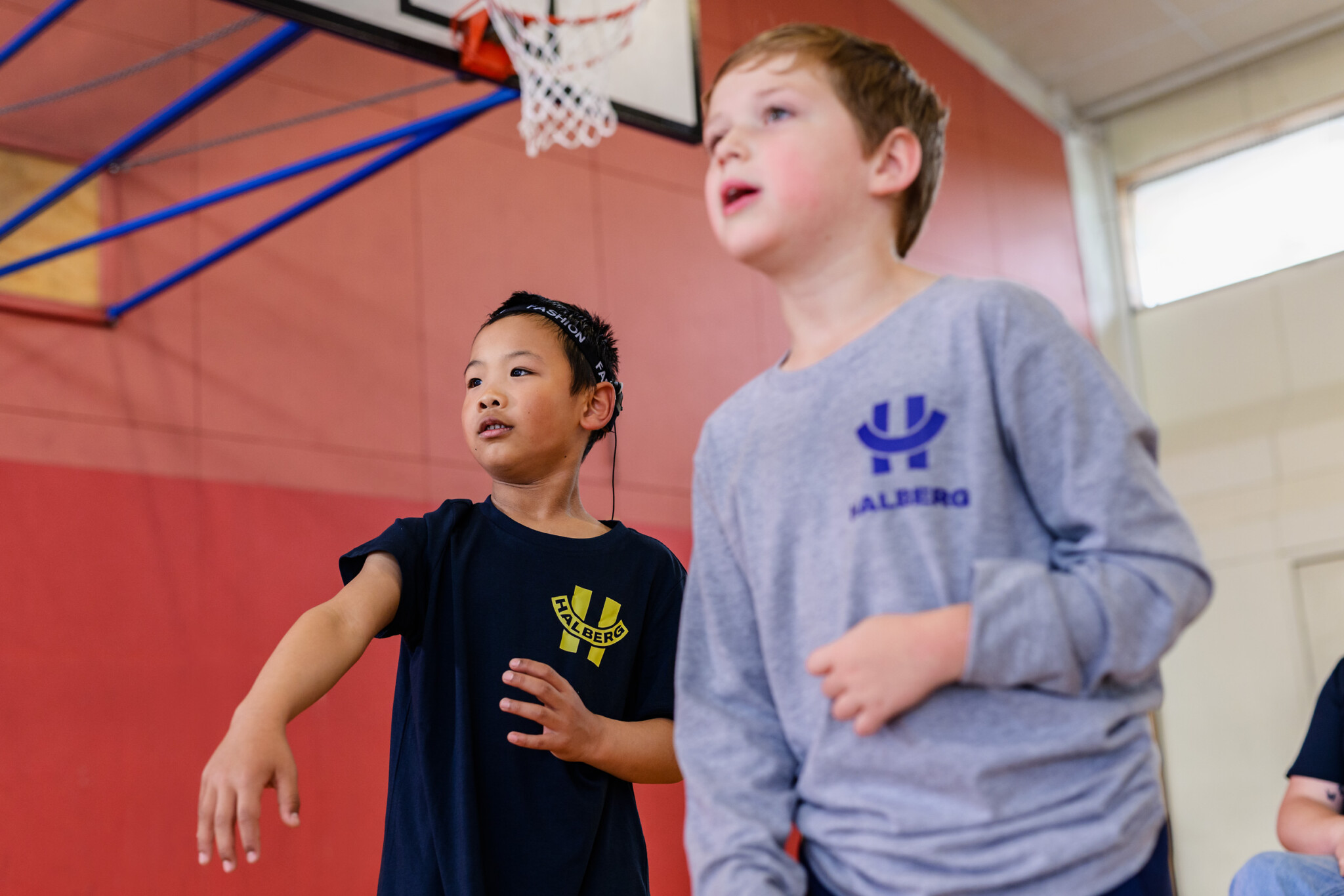
Halberg launched fresh new look and feel!
The rebrand reflects our commitment to bringing about ‘moments of joy’ to ensure all young people with physical disabilities have equal opportunity to participate in sport and recreation. We have listened to our youth and created a brand that better represents who we are and what we do.